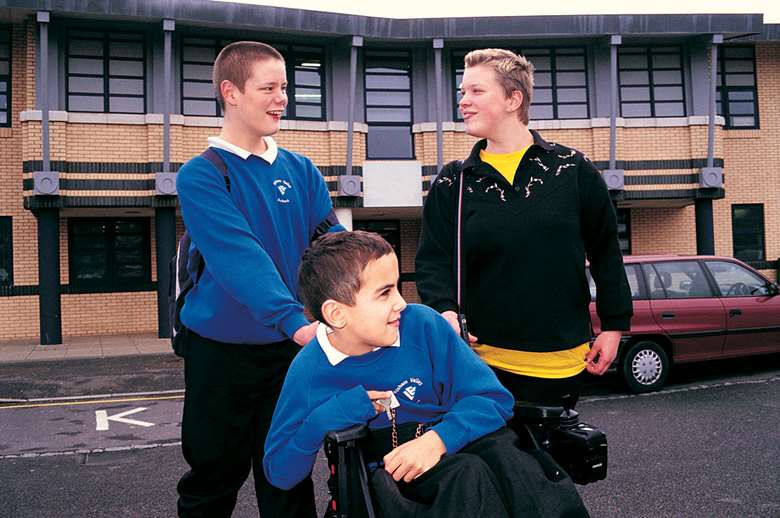Fears mount over SEND reforms
Gabriella Jozwiak
Monday, September 2, 2013
Plans for personal budgets for children with special educational needs have not been tested enough, say experts.

Unless something unexpected happens in Parliament this autumn, soon local authorities will be busy introducing the reforms to special educational needs and disability (SEND) set out in the Children and Families Bill.
Among these reforms is the introduction of personal budgets for children with SEND. These aim to allow families to have more say in decisions about their care by allowing them to receive funds through a direct payment that can be used by parents to buy the services and support they desire. But there are concerns that the pilots testing these direct payments - the SEND Pathfinders - are failing to fully examine the approach.
The Department for Education's evaluation of the pathfinders found that of the 290 direct payments tested in 14 case study sites, more than 270 were spent on home-to-school transport. It is a finding that has so worried the Independent Parental Special Education Advice (Ipsea) charity that it has filed Freedom of Information (FoI) requests to the pathfinder local authorities to gain more detail about what else parents are using direct payments for.
Disaster warning
Ipsea chief executive Jane McConnell warns that unless the role of direct payments for purchasing non-transport services is fully tested, the policy will be a "disaster". She says the results from her organisation's FoI requests suggest that just 25 families are using personal budgets to trial support other than transport, including the purchasing of equipment. But she suspects some intended uses of the funds, such as paying for therapies, have not been tested at all.
McConnell says the dominance of transport in the use of payments is unnecessary because parents can already apply for such funds from local authorities. "Direct payments are not intended to solely fund transport, but also services like speech and language therapy or physiotherapy," she says. "There seems to be no evidence the pathfinders have tested these out."
There is also an issue over whether parents who choose to buy therapy services would end up paying more than local authorities. "An authority pays about £20 an hour for a speech and language therapist," she says. "If every parent in an authority wanted to employ their own, they can't buy this for anything less than £60 an hour."
McConnell is also concerned that councils lack the resources to implement the schemes. In July, the government announced an extra £9m to help councils prepare for the reforms. She says this is too little: "Authorities are going to have to rewrite materials, retain their staff and put new systems in place. But authorities are in chaos at the moment because of financial cuts."
She also warns that the number of young people entitled to SEND support will rise, as the Education, Health and Care plans - which will unite all services and replace the current statement of special educational needs - become available for people aged up to 25.
John Drewicz, president of the Association of Educational Psychologists, says the results of the pathfinders are no surprise since purchasing transport is straightforward for parents compared to commissioning specialist SEND services. The market for specialist services, he notes, is complex for parents to navigate because it is not geared towards personal provision.
More guidance needed
"The range of services that could be managed by parents is limited," he says. "If the pilot project goes on to expand the range of things that parents might be able to pay for, they will need more guidance and support in how to commission that and where to purchase it."
Drewicz says councils should provide a menu of providers and services that have been accredited and have passed criminal records checks. He also says the financial climate has created a situation where parents could be forced into using direct payment for transport costs. Many authorities have cut back on subsidised or free travel in recent years. "Where parents who used to get transport free of charge are now being charged for it, they may have to use the direct payments to cover the provision they used to get for nothing," he says.
But Nicola Gitsham, programme manager at the National Development Team for Inclusion - a charity involved with the pathfinders - says progress has been made in the pilots recently. She points to the SEND Pathfinder Information Pack, another DfE report issued in June, that contains case studies including one of a mother in West Sussex who used a direct payment to hire a personal assistant for her 15-year-old daughter.
Gitsham says SEN professionals are nervous about the introduction of direct payments because they do not understand how they relate to personal budgets. She says the direct payments connected with Education, Health and Care plans can be offered alongside arrangements where the authority or a third party manages a separate personal budget for the child.
Gitsham adds that people get confused about direct payments for educational services because the term "personal budget" is also used in health and social care for separate direct payments provision. For the budgets to work, she says local authorities must provide good person-centered support planning and help to develop the market of SEND services providers.
PERSONAL BUDGETS
Education, Health and Care (EHC) plans will unite all services and replace the statement of special educational needs. Individuals with an EHC will be entitled to a personal budget. This will be allocated by a local authority. Young people or parents will be involved in decisions on how to spend the budget on provision identified in the EHC plan.
Some of the funding within the personal budget can be allocated as a direct payment to parents or young people, so they can spend the money on agreed provision themselves. A personal budget can also be managed by a local authority or third party on a child or young person's behalf.




